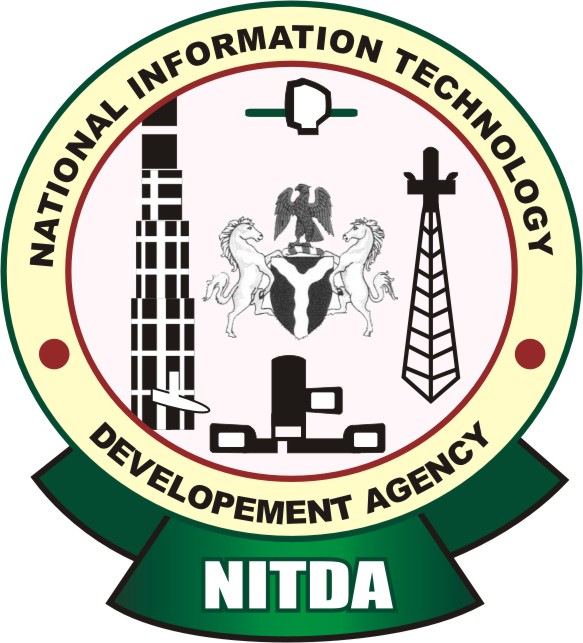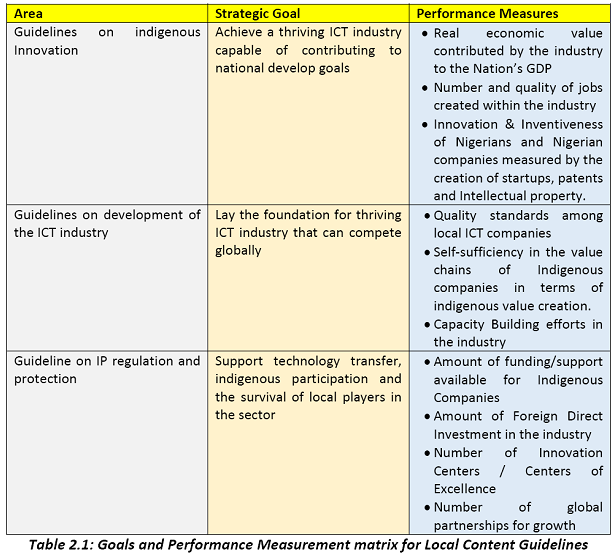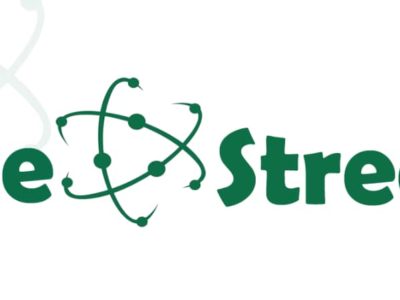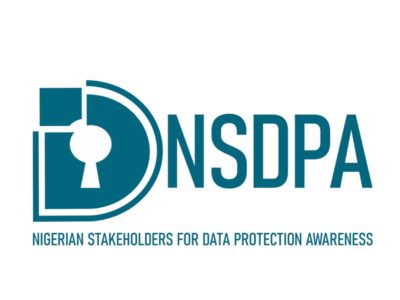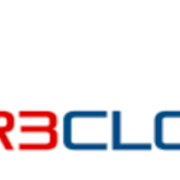NITDA’s framework for Local Content Development
Government is keen to drive local content in the development of Information Communications Technology (ICT). One of the core mandates of the National Information Technology Development Agency (NITDA) is to encourage the buildup of local content in the country’s IT space.
For now, and as emphasized by the Honourable Minister of Communications Technology, Mrs. Omobola Johnson, the usage of local content materials from Nigeria in the country’s IT sector is still very low. Mrs. Johnson made this remark at the December 2013 eNigeria conference organised in Abuja by the NITDA with the theme: ‘Local Content in ICT Development in Nigeria: The Journey so far’.
For instance, the telecoms sector is the fastest growing sector of the economy and the fourth largest contributor to the country’s Gross Domestic Product (GDP). Growth in the telecoms sector has inspired a high tele-density growth from 0.73% in 2001 to 85.25% in 2013. But “as impressive as the figures may seem, the Nigerian Information Technology (IT) landscape suffers from a clear negative trade balance, as the economic value generated locally with imported technologies used by Nigerians is still extremely low,” said the Honourable Minister.
Through collaboration with stakeholders, the NITDA developed ICT local content policy guidelines – a framework to guide local input in the IT industry. The Guidelines for Nigerian Content Development in ICT was formally unveiled at eNigeria 2013.
GuidelinesforNigerian Content Development in Information and Communications Technology (ICT)
1.0 Authority
In exercise of the powers conferred on it by section 6 of the National Information Technology Development Agency Act of 2007, NITDA (under the auspices of the Federal Ministry of Communications Technology) hereby issues the following guidelines on Nigerian Content Development in Information and Communications Technology. NITDA shall exercise the power to institute a sustainable implementation framework for the guidelines.
2.0 Short title and commencement
- These guidelines may be cited as Guidelines on Nigerian Content in ICT and shall come into effect on December 3, 2013.
3.0 Definitions
In these guidelines unless the context otherwise permits:
- Act means the National Information Technology Development Agency Act 2007
- Computer includes information technology systems, whether networked or not
iii. MDAs mean all Ministries, Departments and Agencies of government at all three tiers, Federal, State and Local, as well as in all three branches, Executive, Legislative, and Judiciary.
- The Agency means NITDA or the National Information Technology Development Agency
- IT means Information Technology, and is used interchangeably with, ICT – Information and Communications Technology which is a combination of equipment and services that enables remote gathering, processing, storage, conveyance and delivery of various forms of information
- A Nigerian company is a firm formed and registered in Nigeria under the Companies and Allied Matters Act 1990 with not less than 51% equity shares owned by Nigerians and which has a domain name on the .ng domain.
vii. A Multinational company (MNC) is a firm that is registered in more than one country or that has operations in more than one country.
viii. Original Equipment Manufacturer (OEM) is a firm that makes functional computer devices from component parts bought from other organizations.
- Original Design Manufacturer (ODM) is a firm that produces hardware, which other companies sell under their own brands.
- Hardware computer companies are firms who assemble, maintain and repair computers and peripheral components.
- Technology Platform companies are firms that enable software developers to develop software applications for the platform by using well defined sets of standards. These include operating systems, Runtime libraries, databases and cloud-based platforms.
xii. Independent Software Vendor (ISV) is any individual or firm that makes and sells software products that run on one or more computer hardware or operating system platforms.
xiii. Software Development Firm (SDF) is a firm that consists of at least five active developers with competencies across popular technologies and platforms – developing, testing and managing software solutions.
xiv. Internet service provider (ISP) is a firm that offers users access to the Internet and related services.
- A Systems integrator (SI) is an individual or business that builds computing systems for clients by combining hardware and software products from multiple vendors.
xvi. A professional service firm (PSF) is any firm with high knowledge intensity and a professionalized workforce providing IT consulting or system integration services.
xvii. Back end / Back office: is the systems that process data, applications or workflow points that do not have direct contact with customers or users.
xviii. Basic raw materials include intermediate products which have undergone the first stage of refinement from their naturally occurring state e.g. silicon ingots
xix. Call Centre includes an office in an organization or outsourced to third parties where customers service representatives answer subscriber calls for order processing, billing enquiries, fault reporting and general inquiries
- Completely Knocked Down (CKD) assembly plant is the reassembling of foreign-made ICT products that have been imported in the form of basic component parts, with virtually no value added except for labour involved in fitting the parts together and testing
xxi. Firmware is a software that is already transformed into hardware such that it cannot be modified and performs only predetermined functions of a repetitive nature
xxii. Local manufacturing is the ability to design and fabricate a product that meets a specified performance requirement through the use of at least 50% local content by value.
xxiii. Manufacturing is the production of simple products or goods that meet specified performance criteria in commercial quantities through the chemical and mechanical transformation of basic or intermediate raw materials
xxiv. Middleware is software that allows several other software systems to work together easily.
xxv. Malware is software that is intended to disrupt, damage or cause other software to malfunction or gain an unauthorized access into third party information.
xxvi. Nigerian content or local content is the equivalent of local value added to the development, design, fabrication and assembling of ICT products in Nigeria measured in monetary terms as a proportion of production cost or the proportion of indigenous manpower involved in the various stages associated with the provision of an ICT service in Nigeria
xxvii. Teledensity is the number of citizens out of every hundred or percentage of citizens that have personal telephone lines or numbers
xxviii. Telco means Telecommunications company – a company that provides telecommunications services such as telephony and data communications
xxix. Value Added is additional or enhanced service that increases the value of an existing product or an offered service.
xxx. SIM is Subscriber Identification Module
4.0 Application
- The persons and bodies to which these guidelines shall apply include but are not limited to: Federal, State and Local Council MDAs, Private sector institutions, business enterprises and individuals
- The relevant part of these guidelines shall form part of any existing or future requirements for periodic accreditation and renewal of license of Information and Communications Technology companies, including OEMs, ODMs, Telcos, ISPs, MNCs, Value Added Service Providers etc and for the grant of approval or permission for the establishment of new manufacturing or assembly plants, software houses, IT Parks and allied facilities.
5.0 Purpose & Objectives
These guidelines are issued for the purpose of achieving the following National objectives:
- Enable the local ICT industry to contribute meaningfully towards the achievement of national development targets
- Stimulate and increase the production, sales and consumption of high quality information technology products and services developed by indigenous companies that serve the unique needs of the local and global market
- Enable indigenous information technology companies and provide them opportunities that will improve their ability to provide relevant products and services that amply satisfy the Nigerian consumer.
- Facilitate efforts to build capacity and equip Nigerians to serve as active workers and participants in the local ICT industry
- Provide a framework for the regulation and legislation on the creation, distribution and use of Information Technology and its associations within Nigeria
- Promote and encourage an environment within Nigeria that is welcoming to foreign investments in Information and Communications Technology, as well as the export of indigenously made ICT goods and services
6.0 Enforcement:
The enforcement of these guidelines shall be by NITDA and the relevant authorities in both the private and public sectors, including Federal, State, and Local bodies in charge of ICT procurement, regulation, and development under a framework to be developed by NITDA.
7.0 Review and Amendment
NITDA shall amend or review these guidelines periodically or as the need arises in consultation with stakeholders. In reviewing them, the Agency shall be guided, among other considerations, by global trends and practices in Information & Communications Technology and the developmental aspirations of Nigeria. Guideline review activities shall be conducted in a way to reflect:
- Responsiveness to emerging trends and shifts in the global ICT industry that may have significant implications for the achievement of the objectives.
- Responsiveness to changes in local ICT industry: as the gains of these guidelines are realized, further changes may be made to increase the opportunities available to indigenous companies and support further growth of the industry.
- Review of performance: It is imperative that insights from periodic reviews of the impact and performance of these guidelines are captured and form inputs to inform future revisions of this guideline document.
8.0 Breach
Any breach of these guidelines shall be construed as a breach of the provisions of the National Information Technology Development Agency Act of 2007.
9.0 Explanatory Notes on Guidelines for Nigerian Content Development
With the growing pressure of globalization, every government as well as captains of industry are charged with the burden of finding ways to ensure that their regions stay competitive and are capable of fulfilling local demand. Not only that, but given the wide availability of information technology being created to serve markets world over, it is imperative that the right frameworks be created to enhance the ability of indigenous companies to maximally explore and exploit local opportunities, as well as remain competitive globally.
A focus on “Local content” aims to achieve the development of local skills, technology transfer, use of local manpower and local manufacturing. It is defined as the amount of incremental value added or created in Nigeria through the utilization of Nigerian human and material resources for the provision of goods and services in the ICT industry within acceptable quality and standards in order to stimulate the development of indigenous capabilities.
The framework of this guideline document takes into consideration the vision, objectives, strategic goals and role of NITDA in the industry. It is also tied directly into several performance measures that will form the basis for tracking the progress and impact of the guideline in order to enable frequent stock taking and re-evaluation of strategies and directives – an approach that is critical for managing and regulating such a fast paced and changing industry.
There are three core focus areas of the guidelines: driving indigenous innovation, developing the local ICT industry and establishing Intellectual Property regulation and protection standards, each of which has a set of related strategic goals. These strategic goals form the basis of specific guidelines that include recommendations for the restructuring of the industry and actions required by NITDA and other government MDAs. They also create potential opportunities that local companies are expected to take advantage of. Further, this document provides a set of appropriate performance measures linked to the achievement of the strategic goals.

